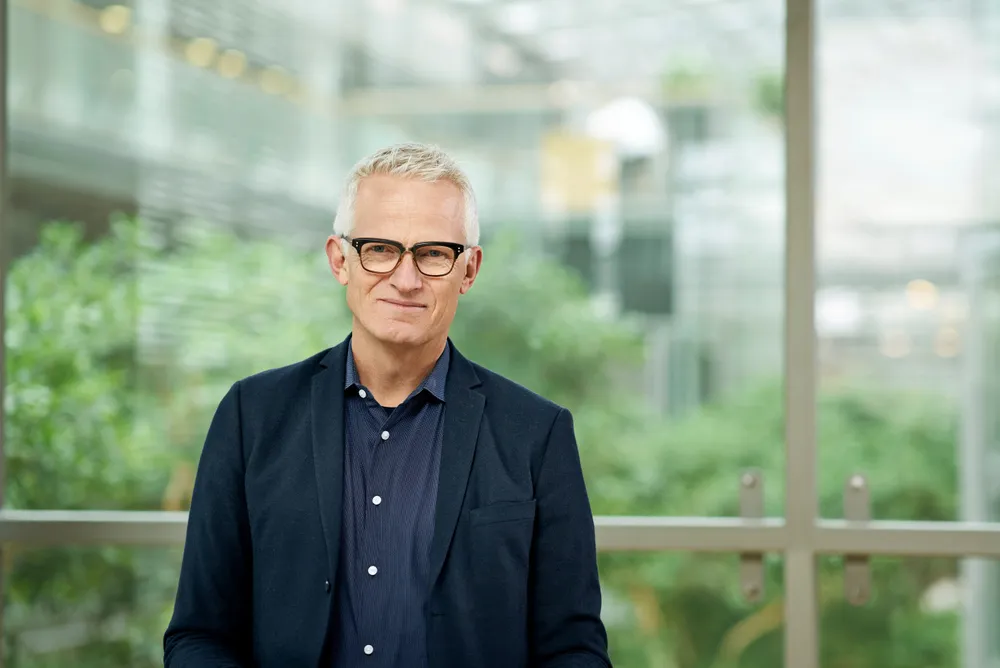Orsted CEO says 'diligence' needed as US projects walk profits tightrope
Mitigation measures, including a vessel extension, are among the factors that have pushed up costs on Revolution Wind

Orsted’s two "legacy" offshore wind projects under development in the US —Revolution Wind and Sunrise Wind — pose a continuing risk of new impairments, but both are on course to make a return on investment, the company's CEO said today (Tuesday).
Orsted has pressed ahead with the 704MW Revolution Wind and 924MW Sunrise Wind projects, but both remain on tight schedules and are being closely watched for signs of further stress, Nipper acknowledged.
The Danish offshore wind developer had already announced a delay in the Revolution Wind project, in August, due to what were described as substation construction delays and “higher-than-anticipated levels of soil contamination” at the project's landfall site.
No new delays were announced today, but there were some new impairments for an uptick in costs on a project that will bring commercial-scale offshore wind power to Connecticut and Rhode Island.
"We have seen risks impacting the construction of [Revolution Wind]. We will be diligent and with strong focus to deal with the project execution. I want to underline that we are in impairment territory, with regards to our legacy projects in the US, and... any adverse changes to the business case will lead to further impairments," he said, while stressing that changes can also lead to reversals.
Nipper noted Orsted has managed to achieve just such a reversal, helped by the negotiation and finalisation of several major supplier contracts for the cancelled Ocean Wind 1 contract.
“Outcomes were better than we had assumed when we made our provisions for the project cancellation costs, resulting in a net reversal of cancelation fees of DKr6.4b ($643m), which had a positive impact on reported (operating profit),” Nipper said.
"As a result of our settlements, we have around DKr3bn left in the provision, and expect to close out more towards the end of the year.”
The impairment was also partly offset by the Sunrise Wind project being awarded a higher OREC by the State of New York.
Orsted also acknowledged some of the total DKr300m in impairments this quarter related to a fall in long term power prices in the US.
Another factor was Orsted’s steps to mitigate and de-risk supply chain constraints, including a decision to extend the contract for the wind turbine installation vessel (WTIV) to cover the duration of the Revolution project.
"We continue to work with our supply chain to ensure that there is stability, predictability. But as illustrated with the extension of the vessel contract, we are also proactively mitigating some of those potentially adverse impacts, as in this vessel.
"That's how we mitigate the risk, Nipper said, stressing that Revolution is still in “positive territory, despite these challenges” when it comes to returns on investment.
“Overall for this quarter, our offshore business actually had a net (impairment) reversal of DKr200m, even though, in isolation, there was an impairment on Revolution,” Nipper stated.
'De-risking every day'
The Orsted boss also argued that the risk of new impairments is now starting to fall.
“We have installed 80% of the foundations and have now installed eight of the (65) turbines. So the project is progressing.... Therefore every day that goes by we also, by definition, de-risk the project,” he stated.
Nipper said he remained bullish about offshore wind in the US.
“It's an industry being built from scratch, and it is being very strongly supported by not least the Northeast states, where the alternatives for energy supply, and especially green energy supply, are difficult,” he told reporters.
“We see, very importantly, that the power demand and the demand for green power in the US goes steeply upwards in all or most parts of the country due to sort of taking back supply chains and reshoring, due to demand from big tech companies, to AI and so on,” Nipper added.
The Orsted CEO made it clear that he sees offshore wind will play a strong role in meeting this demand, not least by the fact that it is creating jobs in 44 US states.
Answering question on the implications of the US election, Nipper said, "There is a fundamentally growing demand for energy, including green energy.... This is from the reshoring of industries. It is from the tech industry and so on. For us, we see it as an 'all boats rise' situation for all energy sources, and not least for electricity. This is needed, no matter who is in the White House," he said.